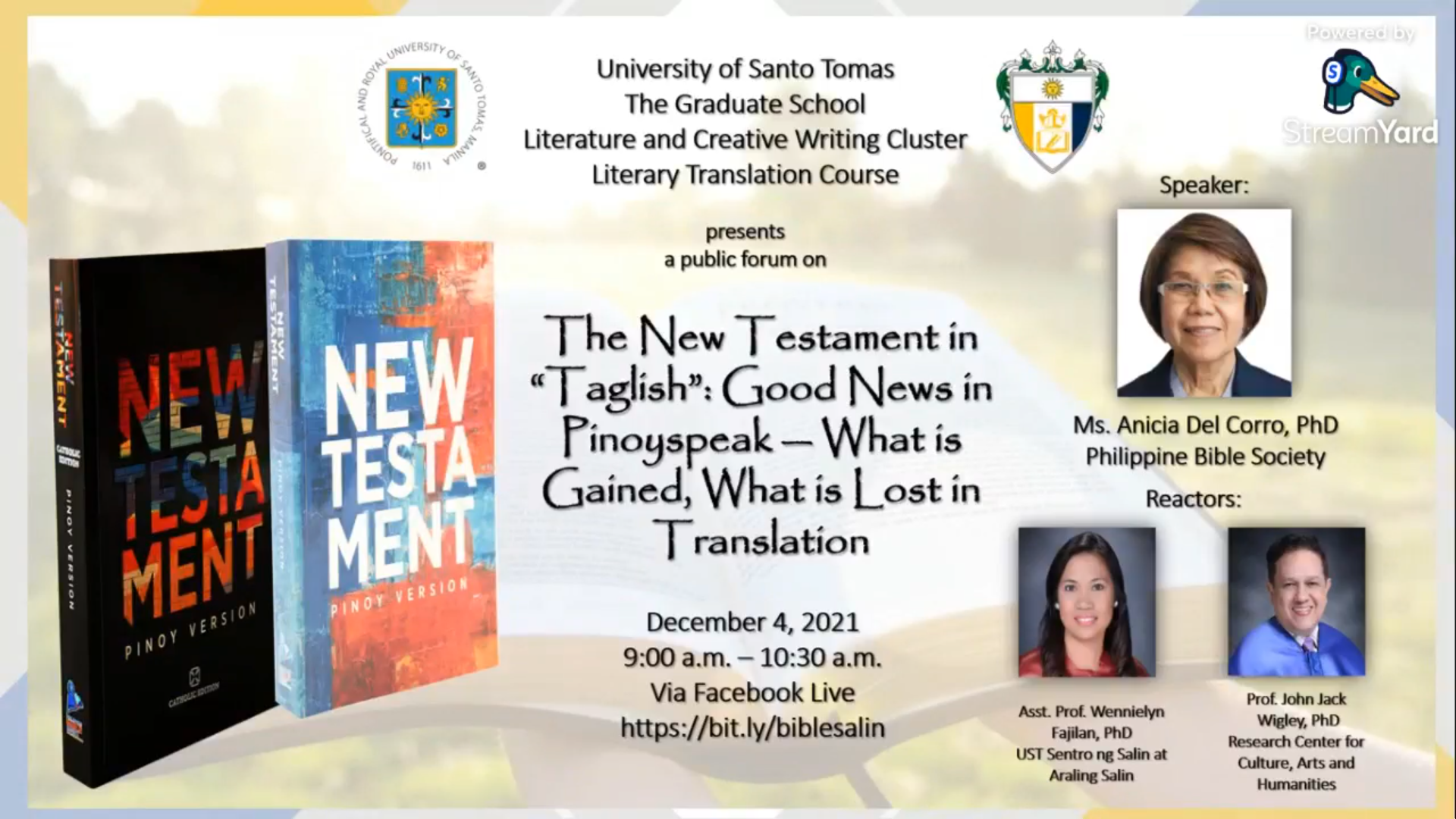
THE PHILIPPINE Bible Society (PBS) is expected to release a complete version of the much talked about Taglish Bible this year.
“We are finishing the complete Bible. By the end of this year, we are finishing the Old Testament, but its publication will be by next year,” Anicia del Corro, translation consultant for PBS, said during a forum on the Taglish version of the New Testament last month.
The version would now include a mixed-language version of the Old Testament along with the Taglish New Testament, she added.
Del Corro said the Pinoy New Testament Bible released in 2018 used heterogeneous language or Taglish to suit the “contemporary linguistic situation” in Metro Manila. She claimed that the Pinoy New Testament was “rendered in the most natural way in its specific context.”
However, the translation drew negative reactions from some readers who described it as “scandalous” for supposedly sacrificing the contextual meaning of the Bible.
Among the most quoted translations in the reviews for the Taglish Bible are “Sobrang na-shock ako sa inyo. Ang dali n’yo namang tinalikuran ang Diyos. Imagine, sobrang bait n’ya at pinadala n’ya si Christ sa atin. Ang Diyos mismo ang pumili sa inyo, tapos ngayon, ine-entertain n’yo ang ibang Gospel?” (Galatians 1:6) and “Tapos pinagtripan nila si Jesus. Sinaluduhan nila siya at sinabi, ‘Mabuhay ang hari ng mga Jews!’ Hinampas nila ng stick ang ulo ni Jesus at dinuraan siya. (Mark 15:18)”
Standardization of language
Del Corro said the PBS is aiming for the standardization of the language it uses in its translations.
“When the full version gets released, that is the time when we will be already thinking about standardizing the language,” del Corro said.
“The risk I see [in translating] is the standardization [of language] because there are a lot of varieties right now. In just writing a word, there are a lot of ways. There will come a time in the development of the Pinoy variety when standardization will be needed,” said del Corro.
Del Corro revealed that there had been instances when people approached the PBS and asked for changes in the meaning of the Biblical texts. The group had insisted that it could not alter the meaning of the original and Hebrew texts.
“The text of the Bible—that is the original Hebrew and Greek—that is the one that is not changing. The meaning based on the original text will never change because that is already written,” del Corro said.
The Philippine Bible Society is a non-profit organization established in 1994 that aims to provide people with access to scriptures in languages that they can understand.
The forum titled “The New Testament in ‘Taglish’: Good News in Pinoyspeak – What is Gained, What is Lost in Translation” was organized by students of the literary translation course of the UST Graduate School and was streamed via Facebook last Dec. 4. F – A. N. Apostol



